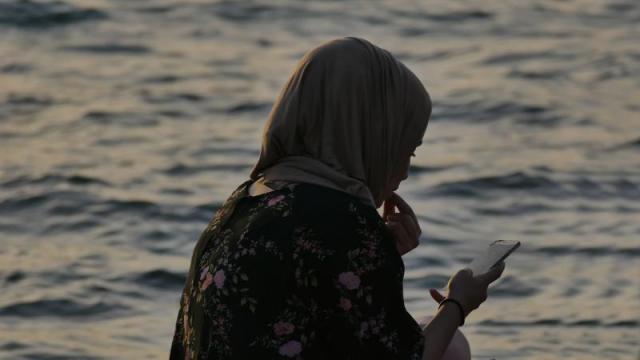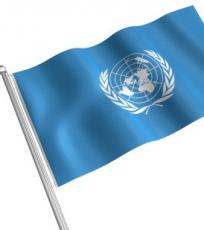New report identifies barriers for migrant victims of family violence in immigration policies
Tue 01 Dec 2020
In October 2020, the Ministry of Business, Innovation and Employment (MBIE) published a report about the effectiveness of Immigration New Zealand's (INZ) approach for preventing and responding to family violence. The project focused on migrants who have lived in New Zealand for five years or less.

The Victims of Family Violence Project took place in 2019 and involved four phases:
- brief review of literature and data from INZ;
- comparison of New Zealand immigration legislation and policy with Australia, Canada, UK and US;
- interviews with four non-government organisations (NGOs);
- internal INZ discussions and actions.
The Recent Migrant Victims of Family Violence Project 2019: Final Report (2020) summarises the findings and recommendations from the project.
The report identifies a number of "policy issues and INZ operational/processing issues" that present barriers to migrant victims obtaining family violence visas. It describes how current policies and practices can contribute to preventing migrant women from seeking or receiving help. This can force women to choose between staying in abusive relationships or returning to their home country, or in some cases force women to return to their home country, leaving their children behind with the abusive ex/partner.
The report outlines some "remediating actions" underway however it also states that a policy review is not currently planned:
"Due to competing Government priorities, policy work to investigate these issues further and any consequent remediating actions cannot be undertaken at this time. However, within the wider context of Government action to eliminate family violence additional immigration operational and policy changes may be considered in the future as part of a longer-term work programme."
In New Zealand, there are two visa categories for migrants who are victims of family violence: a temporary victims of family violence work visa and the victims of family violence residence visa. In reviewing New Zealand's legislation and policy, the report states:
"A key objective of the FV residence visa is to recognise New Zealand's international obligations, particularly to CEDAW and Article 19 of the United Nations Convention on the Rights of the Child (protecting children from mental and physical violence). However, as previously noted, the CEDAW Committee has raised concerns that the policy does not go far enough to prevent situations where migrant women on temporary visas are forced to leave the country while their New Zealand citizen/resident children remain with an abusive father.
If a victim is declined or does not meet the requirements of the family violence residence policy, they could apply to the Immigration Protection Tribunal on the basis that their situation warrants an exception to immigration instructions. However, this is a lengthy and uncertain path with a relatively high application fee."
It further notes that:
"Neither the Minister (nor their advisors) nor the IPT [Immigration and Protection Tribunal] receive specialised training on family violence, and their responses to certain cases can contradict international conventions (for example the United Nations Convention on the Elimination of All Forms of Discrimination Against Women) and/or wider government policy on family violence."
According to the report, the IPT has also stated that the family violence residence visa "is not designed for women from first-world nations."
Information from the four NGOs interviewed as part of the project is summarised in the report: Shakti (Auckland), Shama (Hamilton), Community Law Wellington & Hutt Valley and Wellington Women’s Refuge. This provides further information about operational and policy barriers facing migrant victims of family violence as experienced by the NGOs, including:
- legal aid is not available for people who need assistance applying for family violence visas
- the visa applications are time-consuming and complex to complete, with unpredictable outcomes
- the absence of an informed or stable relationship between INZ and the NGOs presents a barrier to the NGOs' work
- lack of understanding or training for INZ staff in the dynamics of family violence as well as experiences specific to ethnic communities
- lack of trust by INZ in victims or the advocates and lawyers supporting victims
- lack of plain English information about the visas as well as legal rights, including immigration and family violence legislation
- because the residence visa requires the perpetrator to be a New Zealand citizen or resident, victims of abuse by perpetrators on temporary visas are ineligible; some perpetrators are also able to use this to further abuse and control victims
- inconsistency and a lack of guidelines within INZ about the application of the residence policy that requires 'evidence of inability to return to the home country' - this policy does not take into account the wellbeing or safety of a victim's children
- the evidence that INZ will accept for proving family violence is "overly prescriptive" and this evidence can take some time to secure, providing further opportunities for an abuser to perpetrate immigration system abuse and/or coerce victims into returning to the abusive relationship
- victims are often put in precarious situations without the right to work or access benefits while they wait for INZ decisions to progress
- the family violence work visa is granted for six to nine months which is often not adequate time for victims to successfully complete residence applications or gain adequate safety and security.
The conclusion of the report notes that INZ has since provided information on their website about the two family violence visas and related information about criteria. It also notes that INZ has reviewed internal processes related to information sharing as part of compliance with the Family Violence Act 2018 and the Family Violence (Amendments) Act 2018. It further states:
"Remediating actions to address a number of the issues NGOs raised in Phase Three of INZ’s Victims of Family Violence Project are being progressed in alignment with the work outlined above and the wider Joint Venture work programme. To date, the following operational changes have already been made, or are underway:
1. Training on the ‘dynamics of family violence’ is currently being designed for relevant INZ staff.
2. NGOs involved in the Project have been provided with a specialist point of contact within INZ.
3. A Language Assistance Services Programme will potentially address some of the issues that the NGOs raised about interpreting services.
4. Changes to INZ’s internal assessment processes for FV residence visas, particularly the assessment of ‘inability to return home’, are under consideration. These changes should help to improve decision consistency and timeliness.
5. Enhancements to INZ’s information provision on FV visas are being developed."
For more information
For more information about violence against women from ethnic and migrant communities, see:
NZFVC Issues Paper Ethnic perspectives on family violence in Aotearoa New Zealand (2019) by Rachel Simon-Kumar.
Episode 5: Shakti of the Breaking Silence documentary series, produced by Magnetic Pictures for Stuff with the support of NZ On Air and published on RNZ.
Reports published in 2020 from the Australian research project: Multicultural and settlement services supporting women experiencing violence research.
For related research and information see the Migrants, Refugees and Asian peoples quick topic searches in our NZFVC library.
Update: The article Intersections of immigration law and family violence: exploring barriers for ethnic migrant and refugee background women (2021), by Irene Ayallo, explores data from Immigration New Zealand on applications for the Victims of Family Violence visa 2010 2021.
Related media
Case of 'forced marriage' reported in Wellington hampered by jurisdiction issue, Stuff, 01.12.2020
Immigration NZ denied woman residency because she gave birth to rapist's child, Stuff, 20.11.2020
The impossible choice for migrant women who are abused by their partners, Stuff, 13.11.2020
Immigrant women are falling behind during the COVID-19 pandemic, The Conversation, 03.11.2020
Family violence survivor's long battle to remain with her children in New Zealand, Stuff, 19.07.2020
Image: zibik on Unsplash






